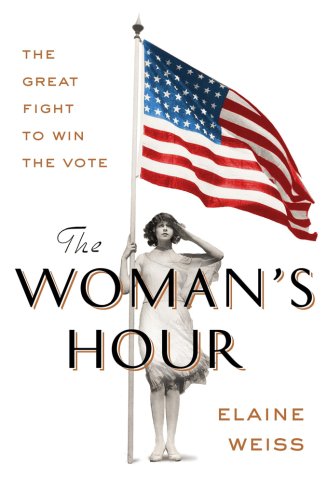Review | ‘The Woman’s Hour: The Great Fight to Win the Vote’
Elaine Weiss Captures Complexity of Seminal Moment in U.S. History

Seventy-two years of ceaseless agitation came to fruition in Nashville, Tennessee, in August 1920 when, after weeks of fierce lobbying and political machinations, the Tennessee legislature narrowly became the 36th state to ratify the 19th Amendment — the Susan B. Anthony Amendment — to the United States Constitution. At long last, women won the fundamental right of political equality.
The Woman’s Hour by Elaine Weiss is a stunning, multilayered narrative about the key figures (women and men) at the center of the drama during those fraught weeks in Nashville. It’s an American story and therefore one about race and power, about the legacy of the Civil War, and about wounds yet unhealed or forgotten in the south; it’s a story about a suffrage movement split over tactics and strategy, with one faction playing within accepted boundaries, and another more radical faction tired of waiting for men to do the right thing.
Powerful forces were arrayed against ratification that summer in Nashville, fearful that giving women the franchise would hurt their business interests, dilute their social power, elevate blacks to equality with whites, and sunder the social hierarchy of the south. Some of the fiercest opponents were women who predicted the demise of the family and the defilement of their sex by political activity. During the heated floor debate, Seth Walker, the Speaker of the Tennessee House of Representatives, made very clear what was at stake when he thundered, “We want this to remain a white man’s country!”
The Woman’s Hour captures the complexity of a seminal moment in American history. As the centennial of ratification of the 19th Amendment approaches, this important work couldn’t be more relevant.
Elaine Weiss will discuss The Woman’s Hour on November 3, as part of UCSB’s Arts & Lectures History Matters series. See artsandlectures.ucsb.edu.




You must be logged in to post a comment.